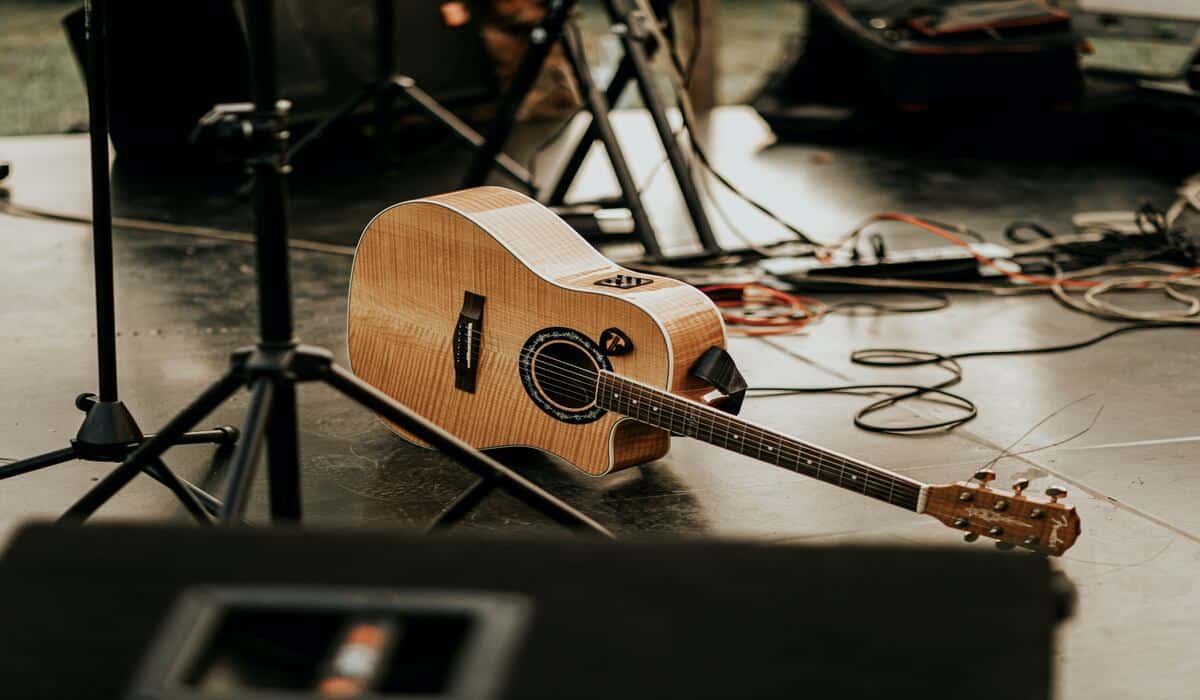Table of Contents
In today’s digital age, where technology can simulate almost any sound, the question arises: why should we continue to play musical instruments? While the convenience of synthesized sounds is undeniable, the rich experiences and profound benefits that come from playing traditional instruments cannot be replicated. In this blog, we will explore the reasons why we should keep playing musical instruments, despite the availability of synthesized alternatives.
The Art of Expression
Playing a musical instrument allows us to express ourselves in a way that no synthesized sound can match. Whether it’s the raw emotion conveyed through a heartfelt melody or the energy unleashed by a thunderous drumbeat, instruments provide a direct channel for our emotions to flow. The nuances and subtleties we can achieve through our touch, breath, or stroke make each performance a unique expression of our individuality.
The Joy of Creation
One of the most fulfilling aspects of playing a musical instrument is the ability to create something new. Every note, every chord, and every rhythm produced by our hands is a testament to our creativity. With a synthesized sound, we are limited to manipulating pre-recorded samples. But with a musical instrument, we become the composer, arranger, and performer, all at once. The satisfaction that arises from composing an original piece or improvising a solo is unparalleled.
Real Guitars Just Sound Better
Among the diverse array of musical instruments, guitars hold a special place in the hearts of many musicians. For example, the Grand Symphony guitar by Taylor, renowned for its powerful and resonant sound, stands out as a remarkable instrument within the guitar family. With its larger body shape and extended dynamic range, the grand symphony guitar delivers a full-bodied tone that fills the room. Whether strummed gently for a mellow ballad or played with gusto for a lively performance, the grand symphony guitar offers a wide palette of sonic possibilities, making it a favored choice for both solo and ensemble play.
Connection to Tradition
Musical instruments have been an integral part of human culture for centuries, carrying with them a rich history and tradition. When we play a traditional instrument, we become part of that legacy, connecting with generations of musicians who came before us. The techniques, styles, and musical genres associated with specific instruments serve as a bridge between the past and the present, preserving and evolving musical traditions.
Physical and Mental Well-being
Playing a musical instrument is a holistic experience that benefits both our physical and mental well-being. The act of playing requires coordination, dexterity, and control, which enhance our fine motor skills and hand-eye coordination. Regular practice also improves focus, concentration, and memory. Moreover, playing an instrument has been shown to reduce stress, elevate mood, and increase overall happiness.
Cultivating Discipline and Patience
Mastering a musical instrument is a journey that demands discipline and patience. Learning to play an instrument requires regular practice, perseverance, and the ability to embrace challenges. Through this process, we develop qualities such as discipline, time management, and resilience. These attributes not only benefit us in our musical pursuits but also extend to other areas of our lives, fostering personal growth and character development.
The Power of Live Performance
While synthesized sounds can be reproduced flawlessly, they lack the raw energy and spontaneous connection that live performances provide. The atmosphere of a concert, the interplay between musicians, and the interaction with the audience create a unique and unforgettable experience. Playing a musical instrument in a live setting allows for improvisation, collaboration, and the sheer thrill of being in the moment.
Musical Exploration and Innovation
Musical instruments open up a world of exploration and innovation. Each instrument has its own unique characteristics and capabilities, inspiring musicians to push boundaries and discover new sounds. For example, the grand symphony guitar, known for its rich tone and versatility, offers endless possibilities for musical expression. By exploring different instruments, we broaden our musical horizons and contribute to the ongoing evolution of music.
Conclusion
While technology has made tremendous advancements in sound synthesis, the essence and significance of playing musical instruments cannot be replicated. The artistry, creativity, and personal connection fostered through playing an instrument are invaluable experiences. Moreover, the physical and mental benefits, the connection to tradition, and the power of live performances make playing musical instruments an essential part of our lives. So, let us cherish and embrace the magic of traditional instruments, as they continue to enrich our world with their unique melodies and harmonies, while also incorporating the new sounds that technology allows us to synthesize.


